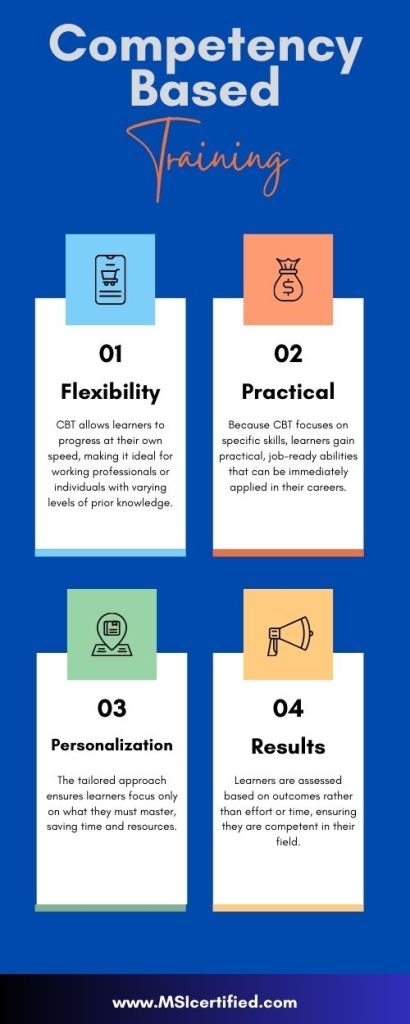Competency Based Training Explained (With Free Guide)
Written By: David Lovell

Competency Based Training (CBT) transforms how individuals acquire knowledge and skills in education and professional development. Unlike traditional models focusing on seat time and rigid schedules, CBT prioritizes mastery of specific competencies, making it a practical and flexible approach for many learners. This article explores competency-based training meaning, why it’s a superior form of education for some, and who benefits most from this innovative learning method.
What Is Competency Based Training?
At its core, Competency Based Training is an educational approach that focuses on measurable learning outcomes rather than time spent in a classroom. It ensures that learners demonstrate mastery of specific skills or knowledge—known as competencies—before progressing to the next stage of their education. This model is widely used in both academic institutions and professional certification programs to align training with real-world needs.
The key feature of competency-based education is its adaptability. Learners can move through material at their own pace, allowing them to spend more time on challenging topics while quickly advancing through areas they already understand.
Why Competency Based Training Can Be Superior
For many learners, Competency Based Training offers clear advantages over traditional educational models:
- Flexibility
CBT allows learners to progress at their own speed, making it ideal for working professionals or individuals with varying levels of prior knowledge. - Practical Application
Because CBT focuses on specific skills, learners gain practical, job-ready abilities that can be immediately applied in their careers. - Personalization
The tailored approach ensures learners focus only on what they must master, saving time and resources. - Results-Oriented
Learners are assessed based on outcomes rather than effort or time, ensuring they are competent in their field.
Who Benefits from Competency Based Training?
Competency Based Training is particularly beneficial for:
- Working Professionals: Those looking to upskill or reskill while balancing jobs and other responsibilities.
- Adult Learners: Individuals returning to education after time away often find CBT’s self-paced structure appealing.
- Organizations: Employers seeking to develop a workforce with standardized, measurable skills.
- Certification Seekers: Professionals in industries like project management, healthcare, or manufacturing where competency is essential for success.
Examples of Competency Based Training
Several institutions and organizations have embraced competency based education, offering outstanding examples of its application:
- Western Governors University (WGU)
WGU is a pioneer in CBT, offering online degree programs that allow students to progress based on demonstrated competencies rather than credit hours. This model is especially popular among working adults seeking affordable, flexible education. - Southern New Hampshire University (SNHU)
SNHU provides competency-based programs for non-traditional students. These programs emphasize skill mastery over traditional grading metrics. - Management and Strategy Institute (MSI)
MSI exemplifies CBT in the professional training space, using this approach for its certification exams. Their programs focus on equipping learners with practical knowledge in fields like process improvement, Six Sigma, and business management.
The Future of Competency Based Training
As education and professional development continue to evolve, Competency Based Training is emerging as a powerful alternative to traditional models. Its flexibility, practicality, and results-driven approach make it an attractive option for individuals and organizations. Whether you’re an adult learner, a working professional, or an employer seeking to upskill your team, competency based education can help you achieve measurable success.
Competency-based Training isn’t just a trend—it’s a proven, effective method for acquiring the skills and knowledge needed in today’s competitive world. By focusing on what matters most — competence — this educational model is reshaping how we learn and grow.


